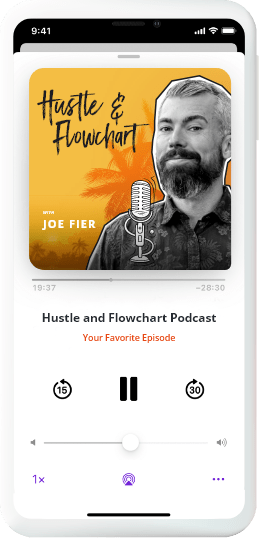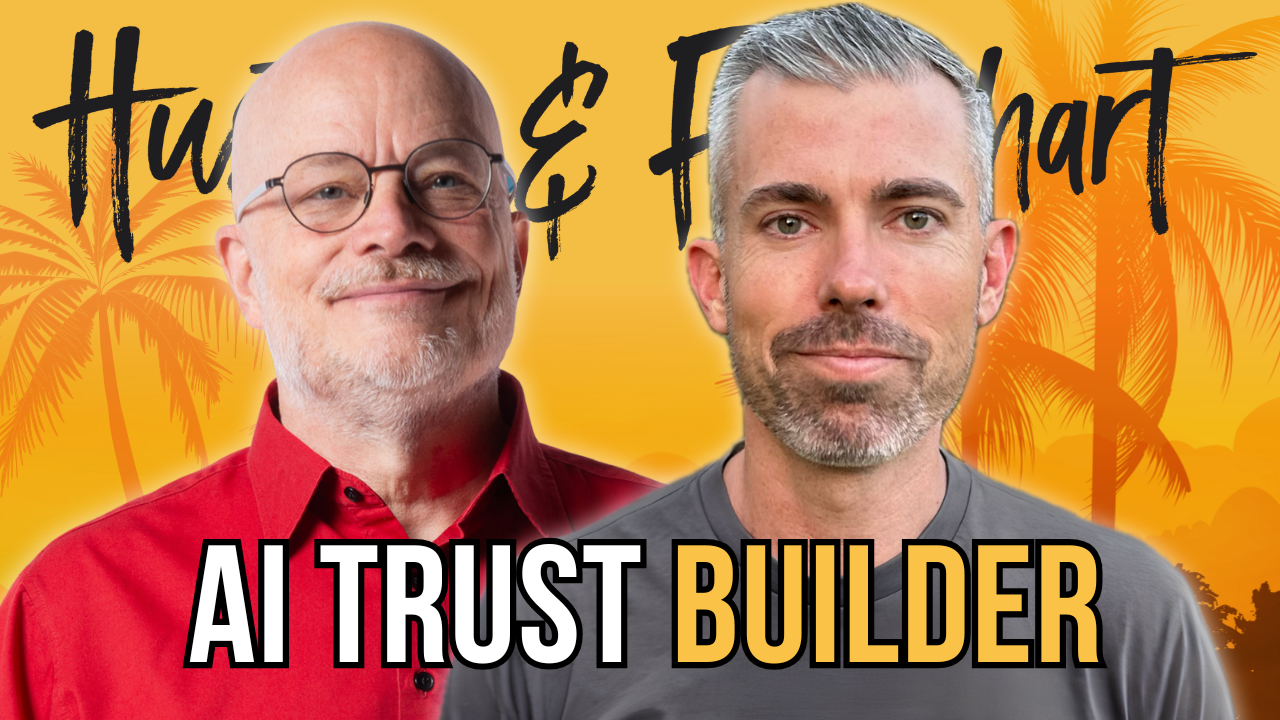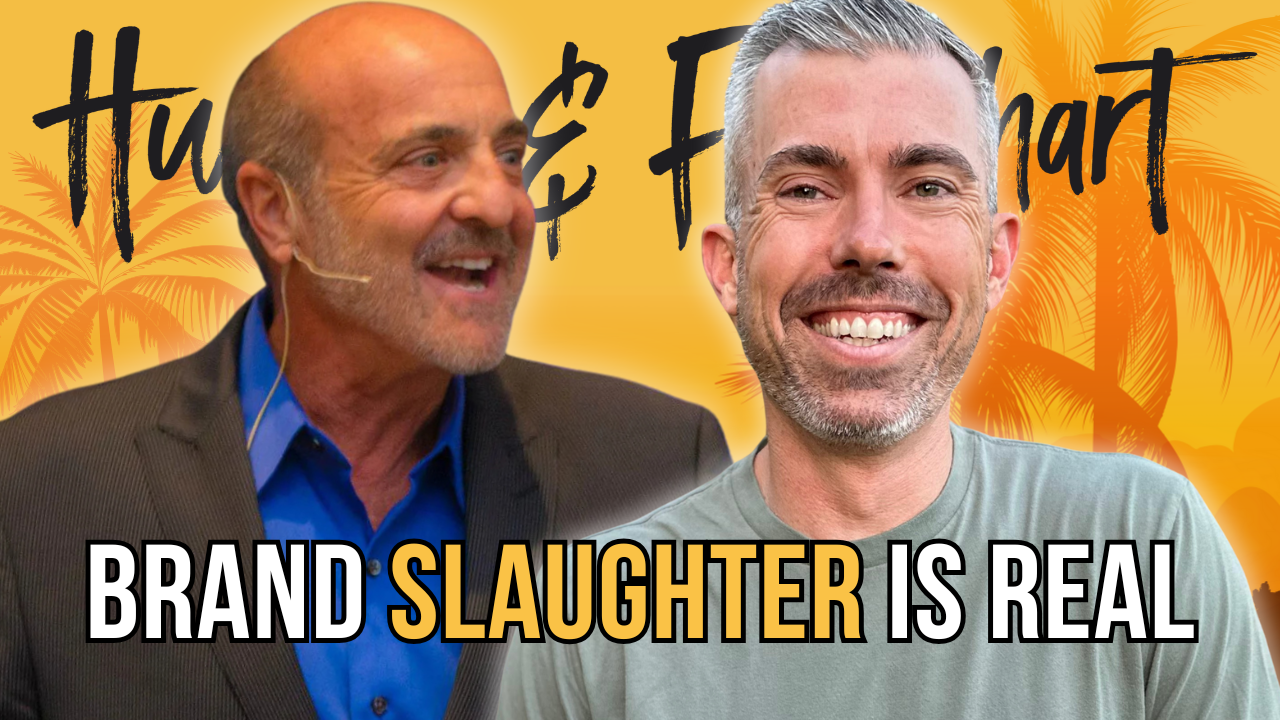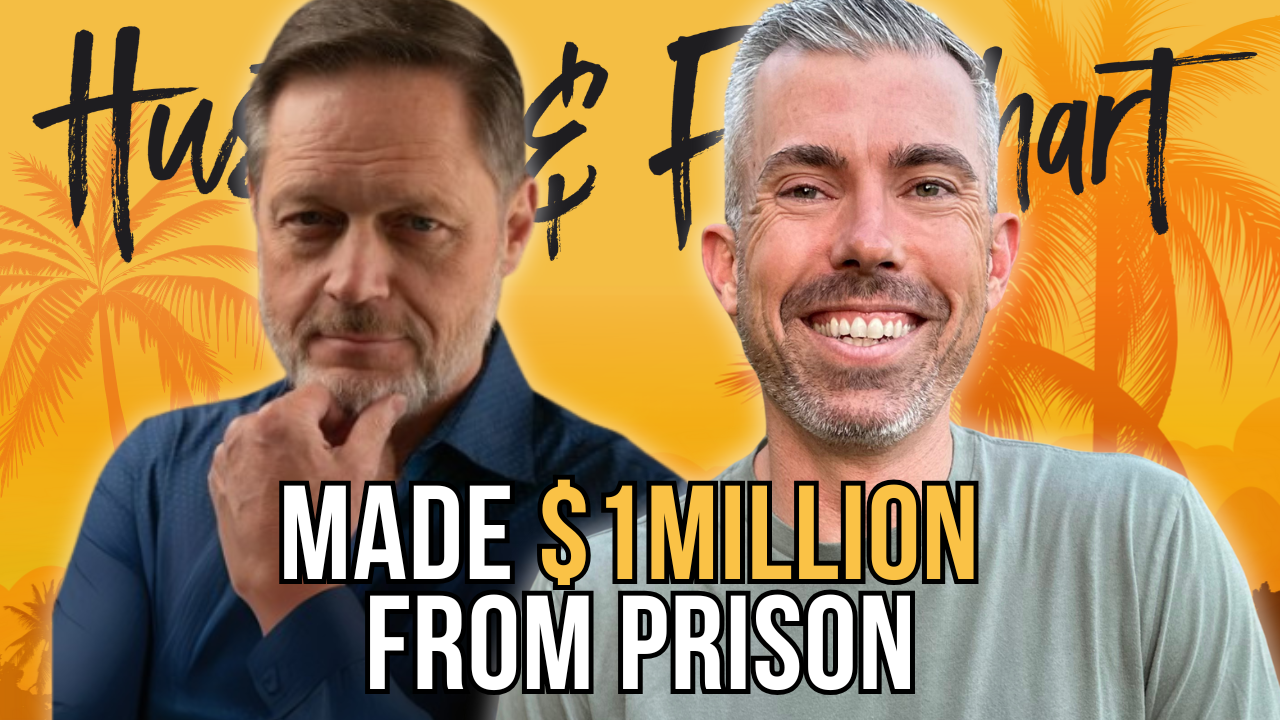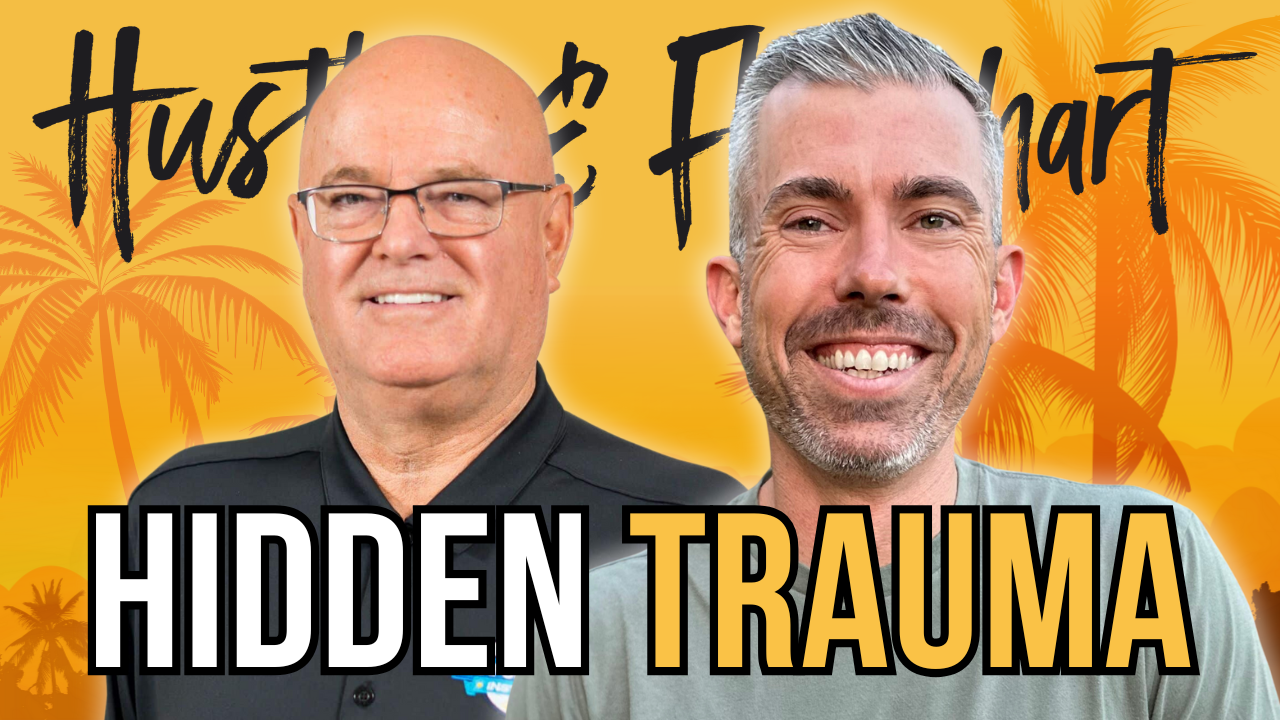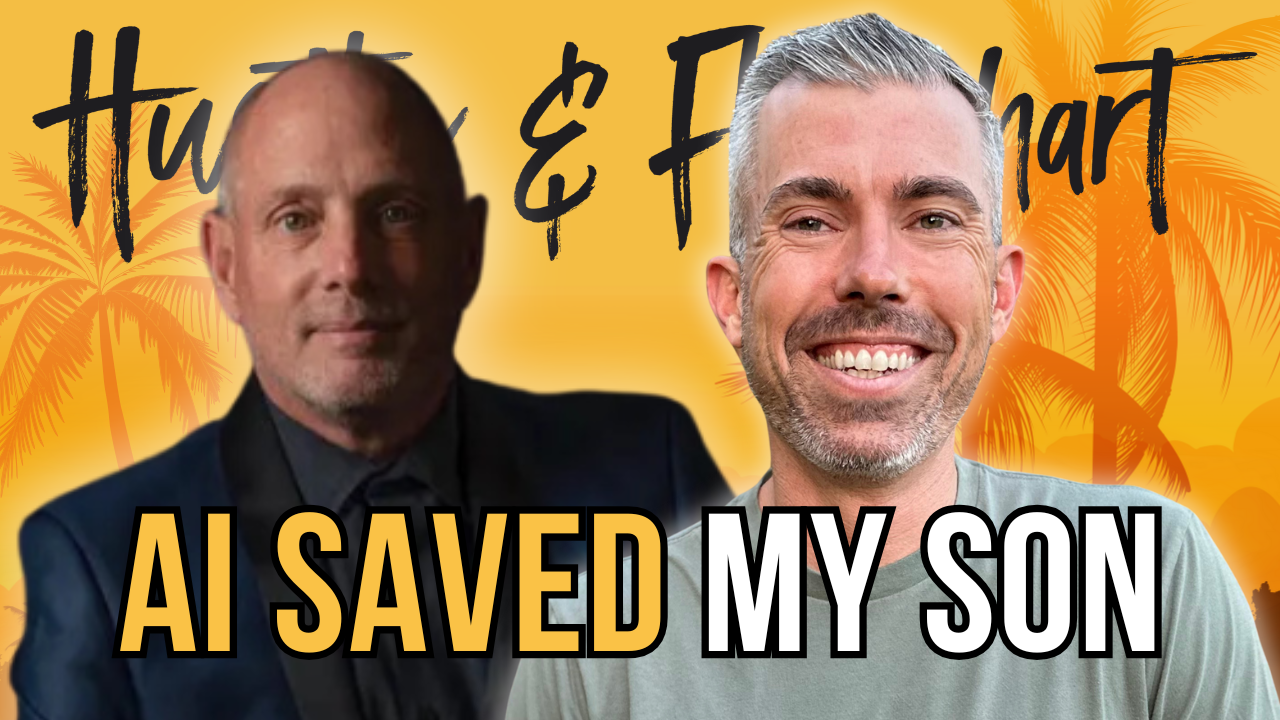[adrotate group=”8″]
Chris Martinez – Did you know that you can generate tons of traffic down in Mexico for around $0.05 per click. Did you also know that you can rank your website in Google in Mexico within a matter of days? Running an online business that caters to the Mexican market is truly low-hanging fruit at the moment.
Today's guest, Chris Martinez, is an expert at taking businesses and recreating them in the Mexican market. He's done it with his own business and he's helped others do the same. It doesn't require a ton of effort if you've already got a business that caters to the English speaking market. In most cases, it can be easily translated to cater to the Mexican market and you can capitalize on the cheap traffic and easy SEO.
Enjoy Chris's explanation and strategies for taking your business to Mexico.
Table of Contents
ToggleResources Mentioned
- Website In 5 Days
- John Lee Dumas (Entrepreneur on Fire example)
- E-Myth
- No BS Time Management For Entrepreneurs
- Delivering Happiness
- The 10x Rule
- Watch this on YouTube
- Round 2 With Chris Martinez
Quotables
Take your business to Mexico to rapidly grow it with not much effort. Share on X Doing online business in Mexico is like doing business in the US 10 years ago. Share on X
Transcript
[mks_toggle title=”View Transcript” state=”close “]Matt Wolfe: Hey, welcome back to the Authority Multiplier Podcast. This is episode 4 of my little 4-day push. I wanted to do 4 episodes in 4 days during the launch phase of the Authority Multiplier Podcast. This is episode 4, this is the 4th day in a row that I've put out a new podcast episode. From here on out, they're going to every Wednesday. You'll get a new episode released to you every Wednesday. It'll be a weekly show. Occasionally, I might throw in some bonus episodes here and there, but I'm going to stick to a once a week schedule for the most part. I want to thank everybody that's subscribed, left feedback, left reviews, shared the podcast and all that sort of stuff in this early 4-day launch phase.
I ended up launching this podcast a little earlier than I expected. It went live on Itunes faster than I expected so I really, really appreciate all the support and all the sharing, everybody who's helped spread the word about this podcast in the early days. I really appreciate that. Now today's episode is with a guy named Chris Martinez.
I actually met Chris because I did an ESPN radio talk show in San Diego. I was invited to be on a radio show, ESPN-1700. I believe the show was called The Entrepreneur Hour and I was invited to come on and talk about content marketing, how I built my business, and that sort of thing by Chris's co-host, Henry Evans. Chris was obviously one of the co-hosts and I met him during that little radio interview. We had a chance to talk and catch up. I asked him, “Hey, do you want to come, join me on this new podcast, and talk about some of the ideas that you have?”
One of the things that I think that Chris is doing that's really, really interesting is he's a big proponent of taking the products that you've already created, taking the businesses you've already built, and then taking them to Mexico. Getting them translated and then selling them in the Mexico market or doing the things you're already doing, but bringing people on board that can help you sell them down in Mexico because Mexico is such an open market, especially in the internet marketing world and selling things online. SEO, Facebook ads, and all that kind of stuff is so new down in Mexico. Not a lot of people are doing it. There's not a lot of competition. It's low hanging fruit at the moment.
Chris really dives into a lot of that stuff in this episode. He's doing that in his own business. He's got a very, very successful web development company, both in the U.S. and in Mexico. He's going to tell you this whole story. It's a really fun story. He's got an interesting past and an interesting path to how he got to where he is today. One of the things he did, was he actually started a magazine. He started a soccer magazine and that was one of his first entries into entrepreneurship.
I wasn't able to get that whole discussion about the magazine onto the podcast episode, but if you're a member of authorityinsiders.net, you'll hear that entire discussion about how he started a magazine, how he got the magazine out there, and got people buying the magazine, as well as all the behind scenes footage and interviews I did with him outside of the normal podcast interview. That's all available over at authorityinsiders.net, really, really fun conversations, lots of great insights there.
I'm going to hand it over to Chris and we're going talk a little bit about taking your business down to Mexico, but first: Chris, welcome to the show. Let's start off by talking about your back story. Tell me about how you got into entrepreneurship and how you got on the path that you're on today.
Chris Martinez: Absolutely. I think it's kind of an unconventional type of story for someone who works in technology. You typically hear about the kids who go to Stanford and all that good stuff. That wasn't really my route and they're way smarter than me anyways. I was born in Torrance, suburb of LA, and I had a rough childhood. This is like early 90s and so we were all wanting to be like little gang-banger kids. We were the bad ones, got in tons of fights, spray painting on walls, stole cars, and stole all kinds of stuff. It's not something that I was proud of, but it does have an impact on me today so I feel like it's an important part of my story. The only thing that kept me from going down the really wrong path was that I was a pretty good soccer player.
I was playing soccer 4 days a week while my friends were getting into trouble 7 days a week. I think that's the only difference. A lot of them ended up disappearing. Essentially, they got kicked out of school. There was one day where all my friends got kicked out of school except for me because we were smoking pot, really smart. Then my best friend, I remember at the time, he ended up getting shot and killed after high school because he was really in the gangs. I ended up … fortunately, I went to college and went to ECSB, finished there, got a job in sales. I became a sales manager for that company, selling postage machines. Very exciting stuff. Everything was going really well and then by dad got cancer in December 2006. Within a month, he died. Three days before my 27th birthday.
That was a big turning point in my life. I decided that I wanted to try and start my first business so I started a soccer magazine at the worst possible time in history to start a soccer magazine. It's 2007, so it doesn't seem like it was that long ago, but that was right at the time when a lot of these print publications were starting to decline and online was taking over. It seems silly now because everybody goes online for news, especially sports news. Within 18 months, I'd lost everything, completely flat broke, didn't have enough money to pull $20 out of the ATM. I decided that I had to hit the restart button.
I met with a bankruptcy attorney, talked to him about my options, and then decided that I can get a job and I can pay off a lot of this debt that I had. That's what I did, but then being an entrepreneur, you know we're never short on ideas. I needed a website for a project that I wanted to do, didn't know how to do websites, went online, learned how to do my first website by watching Youtube videos.
Then I started getting into the online marketing and learning how to drive traffic. Then I got a job working in online marketing. Essentially, or eventually, I should say, I came up with the concept of for Website in 5 Days where we're working with the smaller companies. We built them great websites, but really what we do is we give them a team to help manage the website, help them with their marketing. The solo-peneurs, they don't have a lot of resources, financially or people. What we do is we provide them the team to manage all that online stuff that they don't really like to do so they can focus on the other aspects of their business that they actually enjoy and that makes them money.
Earlier this year, we partnered with a serial entrepreneur who's got a bunch of businesses in Mexico because one of my dreams that I always wanted to create our company in Mexico. We basically cloned our American business. We have an office in Tijuana, we've got staff down there, we're selling, so kind of fulfilled that dream as well. Things are going pretty good. Can't complain.
Matt Wolfe: That's awesome. Let me step back a minute too. You had, I don't want to say a rough upbringing, but you had some struggles growing up. Where did you get that entrepreneurial drive to go from graffiti and smoking pot and that kind of stuff to …
Chris Martinez: It's interesting because my grandfather immigrated here from Mexico in the early 1900s. At that time, American companies were actually running advertising in Mexico to get people to come up and work in a lot of the factories. My grandfather left home at like 13, eventually made it into Kansas city where he met my grandmother. They had a bunch of kids and my dad was the youngest at 8. My second oldest uncle, growing up, he was a very successful entrepreneur so I got a glimpse into what you could do as an entrepreneur through my uncle.
My dad also was an engineer and I got to tell his story really quick because his mom died when he was 16. They were living in Detroit. They moved to California in the … he was born in 47 so then in 65, 63. He was going through a rough patch, having lost your mom that young. At that time, the Catholic school that he went to … They were the only Mexican family in the whole neighborhood. The teacher said, “You're nothing. You're going to amount to nothing. Just go get a job in the factory.” After high school, that's what he did.
Then it was the Vietnam war so my older uncles who are much older, the age difference between my dad and my oldest uncle is 24 years, they approached my dad. They were both former military, they said, “Hey, you've got to enlist in the military otherwise you're going to wind up on the front lines, you're going to die.” He goes in the military. He ends up doing all this testing. It really built his confidence. He realized that he could do something more than just pounding sheet metal all day. He ended up becoming an engineer. He had his own engineering company for a little while. I got to see him, we'd go to his office, all that stuff. That was another glimpse into entrepreneurship. If he were alive, he would tell you he was not the best business owner; he really enjoyed being an engineer. It was really cool for me to see that there was something other that you could do than just going and getting a 9 to 5 job.
Matt Wolfe: Yeah, that's cool, but let's shift over into the opportunity that exists down south of the border. Why don't you tell us a little bit about what you're doing down in Mexico right now and how you're evolving that business.
Chris Martinez: When I tell people that I have a web design company in Mexico, the first thing that they do is they look at me like I have three heads. Everybody thinks of Mexico as a third world country where there's chickens running around on the streets, gun fights all the time, and if you're a white guy coming across the border, they're going to chop your head off and steal your organs before you even step foot across the middle line which is not the case at all. I'll give you some stats, right? Mexico, this year, has the 8th largest number of internet users across the world. They have more internet users in Mexico than anywhere else in Latin America. They've got more internet users than the whole entire country of Germany.
You would never think that Mexico has more internet users than Germany, but they do. Having traveled down there for vacation and just spending a lot of time down there for fun, I saw this opportunity. When I started looking into it further, I was like, “Oh my gosh.” Let's frame it so that in the year 2000 in the United States, we had 43% of Americans had access to the internet, in mid 2000. Anybody who did any sort of online marketing back then was making money. It was like you were just printing money. You run an ad, you drive it to a horrible website, you get a sale. It's crazy. Now, it's like 87% of Americans have access to the internet. Much, much harder to do online sales. You can't just drive somebody to a landing page and expect them to buy. It just doesn't work like that anymore.
When we started looking into the research, it's as if Mexico is at, today, where the United States was 15 years ago. We always say like, “Oh, gosh. If knew what I knew now, back then, I would do all these things differently.” In Mexico, it's like we can go back in time and we've tested it. Right now in Mexico, 43% of the population has access to the internet, just like the United States was in the 2000s except they're getting online much, much faster. The good thing for us is that the business population isn't really adapting as quickly as they could. They're not seeing the writing on the wall as fast as we can.
Our mission for Website in Cinco Dias, that's an Mexican company, is to help the small, medium sized business owners get online and then … They don't know what to do and so they have our team to essentially run everything for them. We've run tests for ourselves, my partners' companies. To give you an example, we're seeing 3 to 5 cent clicks and 30% to 40% conversions riding people straight to a landing page. It's the same. It's so easy right now to go down there and make money online. That's …
Matt Wolfe: Your main website is Websites in 5 Days, right?
Chris Martinez: Website in 5 Days, yeah.
Matt Wolfe: Website in Five Days, but you're essentially going to down Mexico, translating that business, and making a Mexico version of that exact same business and following the same business model. It's just everything is so much easier in Mexico because as far as the internet goes, they're kind of behind the times so to speak with the internet stuff.
Chris Martinez: Yeah. They just don't know. There's so many people who are online. They just haven't figured how to monetize it yet. It's like they don't see the gold that's just laying at their feet. We do have the website and the whole company down there, Website in Cinco Dias. It translates very easily. We do the same thing down there.
Matt Wolfe: So let me ask you this, are you fluent in Spanish? Can you speak fluent Spanish?
Chris Martinez: Great question. I took three years of high school Spanish. I am not fluent, but we have a great staff down there and because we're in Tijuana, there are so many people who are bilingual down there. We've got a great team. Very talented people.
Matt Wolfe: What I want to dive into is, let's say I've got an existing internet business that caters, pretty much solely, to English speakers. I just target the English speaking markets. What sort of process would you recommend if I wanted to take my existing and get down into the Mexico market? To me, that just sounds like a complex, difficult process because I don't speak Spanish. I took two years of high school Spanish and I couldn't have a conversation. I know enough to ask where the bathroom is, but that's about it.
Chris Martinez: [Spanish 00:15:42] If you don't speak Spanish, you will need to have somebody on the street there to help you get new customers, set up your infrastructure, and all that, but the labor is so much cheaper. You can find a project manager, graphic designer, web designer, anywhere between $800 to $1000 a month and they speak fluent Spanish. Sales people you can get for cheaper and you're just going to pay them a commission.
There are going to be cultural differences. If you go into any country, even if you go into Canada or you go to England, there's going to be cultural differences that you're going to want to have their knowledge to give you advice. At the same time, there's a lot of things you're not going to realize and you're just going to have to figure it out on your own. It's essentially like starting any new business except you do have a leg up because you have experience about what works here. You can take everything that works here and you can take it down to Mexico. It will work 10 times better at 10% of the cost, but you will have to make little, teeny tiny tweaks.
It's like Bill Glazer from Glazer Kennedy. I think his saying is “little hinges swing big doors,” love that saying. It's a thing when you go down to Mexico. There are little tweaks that you make, just little ones. You figure it out over time and it'll make all the difference.
Matt Wolfe: How would I go about finding a team member in Mexico? Let's say I've got a … Let's focus on online businesses because I would say for the most part, the majority of the people who would be listening to this are going to be online marketers, bloggers, people with info-products, people that are trying to sell stuff online. Maybe they're selling physical products through their website that they ship, that sort of thing. I probably already have a graphic designer. What other sort of personnel would I need to go into Mexico and how would I go and find that personnel?
Chris Martinez: If you're creating content, you're going to need someone to write for you. You can go down there and you can find bloggers. You can look for people at the university, is a good place to start. There's like five different universities in Tijuana alone. You can go to, it used to be Elance, but Upwork is now what I think they're called and you can find people. The people on Upwork are going to be a little bit more expensive so if you can go directly to … the people there are going to be expensive because they know that it's hard for the other people. You can't find Mexicans who have those skills very easily. You can go to the universities, you'll get people a little bit better rate or you can just run an ad in the newspaper. A lot of people still go to the newspaper to find jobs. Just run the ad for what you're looking for. It's like hiring anybody, you want to give them some tasks, interview a bunch of people, and just find somebody who's going to be a good fit for you or what you're looking …
From point [inaudible 00:18:52]. Developers. A developer down there, they call them a web master. Not web developer. Big difference, lesson that I learned. If you put web developer, they're going to think it's a software engineer or something like that. You're going to end up paying a lot more for that type of person. What else… Bloggers, we've already mentioned. Administrative staff, accountants, you can find lots of accountants down there.
Matt Wolfe: Now if I've got a business based in the U.S. right now and it's already running. I've got people that are working on my sites for me. I've got people up here, they're doing my accounting for me. Do I need to go and find team members down there as well that do that stuff or can I run my business, but then translate the customer facing size into Spanish online? Do I actually need somebody who speaks Spanish to go and develop the website as well?
Chris Martinez: Is the content in Spanish or in English?
Matt Wolfe: I would imagine that you would need a content creator that speaks Spanish, but what about a web developer?
Chris Martinez: For us, we specifically have a Spanish speaking, Mexican design development team because we're doing sites in Spanish. The sales person will find a client. They're answering all the onboard content in Spanish so we need a design developer to be able to understand what they're saying. If you are doing everything in English then you probably don't need that. It just depends. I would say it's best to have a back-up at least in Mexico. It's just so much cheaper. If you can get a whole design development team for $1200 to $1800 a month, why not? For the accounting purposes, if you were doing transactions in Mexico and you're having the clients pay in pesos, not dollars, and there are different taxes that you need learn about down there, so that would be very beneficial to have someone in Mexico who understands that because it can be a huge nightmare.
Matt Wolfe: Let's say that I've got somebody that's a blogger. They do a lot of blog stuff online and they want to basically take the blog that they have and translate it into Spanish. Maybe take the product they have, translate it into Spanish, and then enter that market. They can essentially use most of the team members they have now or if they've already got a website, maybe they're just duplicating the website, translating the content into Spanish, translating the product into Spanish. Is that a viable way of doing things? Just translate the assets you already have into Spanish, and then we're going to talk about ranking them in Google in a second, just taking these new, re-angled assets and putting them down there.
Chris Martinez: Absolutely. You can get translators in Mexico who understand the culture. Spanish in Mexico is not the same as Spanish in Spain versus worldwide, versus other parts of the world. You can get Spanish interpreters? No, translators, and bloggers for ten bucks an article. [inaudible 00:22:25]
Matt Wolfe: Are you familiar with John Lee Dumas and his Entrepreneur on Fire podcast?
Chris Martinez: I am. I just listened to it last week actually.
Matt Wolfe: He's actually got a translated version. I think he calls it Entrepreneur en Fuego or something. He actually hired a voice over artist who is bilingual, speaks both Spanish and English. He's been going through all of his podcast episodes and having this guy rerecord them all in Spanish so that he could grasp the Spanish podcast market for people that are just starting to discover podcasts down in Mexico.
Chris Martinez: Oh yeah, that's genius. The other huge opportunity is Amazon. I don't know if you know, but Amazon just opened up their first distribution center in Mexico. They're still trying to figure the kinks out. Imagine if you could go back to the early days of Amazon in the United States and get your products on Amazon. You are a fool if you don't go and get your stuff on Amazon now.
Matt Wolfe: Yeah, wow. Let's circle back around to Amazon in a minute because I do want to talk more about that. Let's go over to, you made a comment about how to rank websites in Mexico, but it's so easy in Google to get the website to climb Google. Just because there's not a lot of competition yet. [crosstalk 00:23:39]
Chris Martinez: Remember like 8 years ago, you would type in “plumber San Diego” and you would get all these random directories that pop up. It was because none of these guys had websites. Google didn't have a choice. They don't want to show these directories. They had no choice because there was nothing else to rank. It's exactly how it is in Mexico right now. There are like no plumbers in Mexico who have their own website. Here in the states, it's one of the most competitive industries or verticals. Literally, all you have to do is create a WordPress website, put in your keywords, create some blog content, and use all-in-one SEO or whatever plug-in and your site will rank. It could be as soon as a couple of weeks or a week. If you do that, it's so easy to rank. You're not competing with Yelp down there. They put their actual brand ambassador for Yelp in Mexico within the past five months. You're competing with these little, rinky-dink directories. If you look at them, you will laugh, because they look like 1999.
Build a website, throw it up, and start creating some content. Do simple, basic SEO. You don't even need do link building. You don't have to worry about the social media impact. Your sites will rank. It's that easy.
Matt Wolfe: Down in Mexico, is Google the number one place they go to search for stuff? In the U.S., obviously, everybody says, “Just go Google it.” Is it the same down in Mexico? Everybody's just, “Go Google it.” That's their search engine?
Chris Martinez: Fantastic question. They do use Google, but their main website that they use for content information, and then of course socializing, is Facebook. When Mexico started to get online in 2007-2008, that's when Facebook was starting to really get a hold on the world. They've known the internet as Facebook. Where as we know the internet as Google, right? It's very important to have some sort of social media presence on Facebook as well as advertising. That's where we're doing all of our advertising, getting the cost for clicks like 3 to 5 cents and the 30% to 40% conversion. When you're running ads on Facebook, you're not going to have the targeting data that you will here in the states. You're not going to have income data, you're not going to have value of the home. You're not going to have a lot of these other things that we can target people with, but it's so frigging cheap in Mexico, who cares?
I mean, 30% to 40% conversion with 5 cent clicks, who cares? Life is good. Just run the ads. You can be a little creative and figure out high net worth individuals. Like, in Mexico you are wealthy individual if you have an Iphone 5 or an Iphone 6. Okay? So you can go in and you can target people who have an Iphone 5 or an Iphone 6. You can also target by age. That's very easy. You can target by married or single, they have that information. You can reverse engineer it if you know the culture a little more and you can reach those people.
Matt Wolfe: I would imagine that there are certain interest targets that you know if people are interesting in this specific interest then they might be a higher net worth individual or an entrepreneur or that type of thing.
Chris Martinez: Yeah, absolutely.
Matt Wolfe: Cool.
Chris Martinez: If you don't know, just run the ads. It's 5 cents. Who cares.
Matt Wolfe: Yeah, you're getting 5 cent clicks on Facebook ads and you're getting your stuff to rank in Google because nobody else is trying to rank in Google down there.
Chris Martinez: Exactly, exactly.
Matt Wolfe: That's awesome. I would imagine that if you're a blogger or an online entrepreneur that's trying to blog and sell info-products from your blog, you could make out like a bandit down there. I would imagine no one's doing that if you can rank that easily for things like plumbing.
Chris Martinez: Right, right. Here's the other thing, when we were talking about those too, is what we see as innovative and cutting edge here, it can be a product that is way above their scope of comprehension. Whatever your products are, dumb them down, or relaunch your old products down there. If it's how to build your own website, a tool that you have, that could work down there. What's a new thing that you guys urge like that? A cutting edge thing that you're teaching?
Matt Wolfe: Maybe like automating webinars and that sort of thing?
Chris Martinez: Okay, automated webinars might be a little over their head. That's one that's on the cusp. If it's way too out there. I would say, even something like … What's the live streaming app? I can't think of the name of it.
Matt Wolfe: Like Periscope or Blab or one of those? Yeah.
Chris Martinez: Periscope might be too much for them. They might not be there yet. Your bigger population might not be there yet. You want enough people, a big enough pond to be able to get sales from. Take your products and dumb them down a little.
Matt Wolfe: If you try to sale an info-product, a training product, or something like that, don't be trying to teach them the most cutting edge, advanced strategies just yet. I would imagine a scenario where you would do this advanced training as a ladder. Maybe you bring them in through a blog, into some content about how to get your first basic website set up, and then once they've done, you've got that mailing list. Then you market to them that next strategy, then the next strategy, and then you ascend them up that ladder instead of going straight for the “here's the coolest ninja trick of the day.”
Chris Martinez: Exactly. The other thing is when you're pricing your stuff, put it in pesos. My partner, Sandro, says, “Do you want to sell to Mexico or in Mexico?” The big difference. Embrace the culture, embrace that you are in their country, and sell their rate. Sell using their currency. It'll make a big difference.
Matt Wolfe: Let me ask you this too. I was just talking about info-products and selling digital products online. Is there any cultural difference with how they perceive online information products? I don't know as much about Mexico, but I've heard in other countries, Germany for example, I've heard that they're a lot more hesitant to buy information products, e-books, video training products products, stuff like that online. They haven't reached a point where they feel super comfortable with it. Is that the scenario in Mexico or is Mexico open to that digital product stuff?
Chris Martinez: In my opinion, it's not so much that they are not open to the digital product. It's that a lot of people are still weary about giving their credit card information over the internet. The security part of it. It's the same when e-commerce was starting. There was a huge percentage of the population that was not willing to give their credit card out online. Now we do it like it's no big deal. It's stored in our apps, like in Redbox.
At the same time, there's no competition. Let's say that only 10% of the population is willing to spend money online, there's 14 million people down there that are willing to give you money and there's no competition. I think that there's a bigger opportunity even though people are weary to do it. You can still go down there and make money and when everybody else starts to catch on then you're already positioned as the number one person there.
Matt Wolfe: Awesome. Let's jump over to the Amazon stuff. Do you have any examples of people that took something, put it on Amazon down in Mexico, and it is just crushing it with Amazon now? Do you have some clients that you've worked with that you can share something about that?
Chris Martinez: Actually, my partner. My partner, Sandro, he's got a logistics company. That's his core business, 100 million dollars or whatever. They have a cheese company and they do some other confectionery products, stuff like that. They are going through the process, and we're doing all of the experiments on ourselves, about how to get stuff onto Amazon Mexico and getting it through the distribution channels. The one thing that we have learned is that if you want to sell down in Mexico, you need to have a Mexican entity or work with a company like Sandro's who will do all the importing and do all the paperwork because getting those products into Mexico is not easy. Especially if you don't have a Mexican company.
There's nobody down there that's killing it yet. It's still the figuring out stage, but, again, I feel like that's a good opportunity. You're one of the first people that are there.
Matt Wolfe: What about Kindle? Is Kindle a thing in Mexico or is that not there yet?
Chris Martinez: Kindle has basically been the only thing that Amazon has been doing down in Mexico, doing the e-books. They can't sell physical products, they didn't have a distribution center, so the Kindle e-books, already selling. People know Amazon down there. It's not huge like it is here in the states, but I have a lot of faith in Amazon. I think they'll figure it out.
The other big challenge with Mexico, is the delivery. We complain about the postal service, down there, it is horrible. You would not believe the postal service is down there. Transporting goods, they all use couriers and stuff, that's a challenge that they're working through down there right now.
Matt Wolfe: Mm-hmm (affirmative). With Kindle, let's say I've got a book that's written in English right now, I could go and hire someone to translate it to Spanish, put it on Kindle, and probably rank pretty easy in Amazon because there's not many people selling Kindle books on Amazon to Mexico right now.
Chris Martinez: Oh yeah. Easily. They do really, really like books. One of our lead magnets that we use down in Mexico is I give away a copy of my book in Spanish and everybody will read the book or at least take the book. If you've got an e-book … That's why I think that if you've got a free e-book as a lead magnet, try it. Translate it into Spanish, give it away, get their e-mail address, and then try and up sell them later with another product.
Matt Wolfe: Yeah, that's really smart. I guess the over-all concept here is that Mexico is just now getting into an era where the internet online business is just starting to pick up some steam so now's a good time to take the business that you have, start figuring out how to translate it into Spanish, and tap into that market because it's only going to continue to grow. You can ride that wave as it grows.
Chris Martinez: Absolutely. It's literally like going back in time. I consider it like going back in time. Taking everything you know now, going back, and implementing then. I don't want to say you're guaranteed to make money, but it is very hard not to make money in Mexico online if you know what you're doing.
Matt Wolfe: Very cool. Is there any other topics that you might want to touch on that we haven't touched on or do you think we've covered everything?
Chris Martinez: I think we've pretty much covered everything. Know that, I think it would be valuable for people to just get down there and starting doing things. Everybody is trying to capitalize on the global economy. We've got virtual assistants across the world, we know that there's, what? We say 2.4 billion people online? Which is a little bit over a 3rd of the population. It has access to the internet. It's an enormous opportunity. We work with a lot of franchise organizations as well and their whole buzz is how do we franchise globally? How do we franchise globally? Everybody sees that it's out there and now it's up to the people who have the stones to get out there and try it.
Matt Wolfe: Do you have any recommended resources, books, websites, anything that people can check out if they want to? If they're considering taking their stuff down to Mexico?
Chris Martinez: Me, obviously. They can always reach out to me. I'd be more than happy to talk them through and figure out what it is they need to do. We are kind of writing the book on what it is to do down in Mexico? I do a lot of speaking down there which is fine because I don't speak Spanish. I'm doing an event on Friday, it's called [Spanish 00:36:52] Moda. All these fashion people, designers, and that sort of thing, we're going to be talking to them about how to build their online presence and sell products online, both in Mexico and in the United States. There are organizations that are trying to help people get online, but they don't really know they're doing either so they bring in somebody like me so we're writing the book as we go right now.
Matt Wolfe: What are some of your favorite business books?
Chris Martinez: Number one, got to be The E-Myth, for sure. That book changed my life. What's another one? All the Dan Kennedy No BS books. I haven't gotten one that I don't enjoy. I just read the No BS: Time Management for Entrepreneurs one.
Matt Wolfe: Oh yeah, I love that one. That's one of the best time management books there is in my opinion.
Chris Martinez: Yeah, I never thought that I had a time management problem because I always work and I'm okay with that. I've been doing it like that all my life. Some of the things he talks about, the people who are stealing your time and what that's that really worth, really only 30% of your time is being allocated to revenue generation. If you think that you need to do this much per hour, it's really this much per hour. That sort of thing. What else did I read?
Oh, Grant Cardone, The 10X Rule. I love that one. When you were on my radio show, we talked about the Delivering Happiness book. That's a great one.
Matt Wolfe: Very cool. Well, I appreciate you letting me be your time vampire today.
Chris Martinez: No, no, this is great. I loved it. Anything to help you out.
Matt Wolfe: Where can people find more about you? What's your website, social media? Whatever you want to share.
Chris Martinez: Yeah. Website, you can find, www.websitein5days.com. It's the number 5, where you can get a web site en, e-n, cinco dias. Numbero cinco, or they can feel free to shoot me an e-mail. Chris@websitein5days.com. That's C-H-R-I-S.
Matt Wolfe: Awesome, awesome. I'll put all those links in the show notes so people can have easy access to them, but I appreciate you hanging out and sharing all of these insights with us. It's exciting stuff and we'll definitely be talking more because this is something I want to evolve my business into as well with the information products and translating some of that stuff. I definitely think there's quite a bit of opportunity down there.
Chris Martinez: Yeah and I'd love to hear when people start to implement. Send me their success stories. I'd love to hear about that.
Matt Wolfe: Absolutely. Well, cool. Thanks so much for hanging out. I appreciate you spending the time and it's been fun.
Chris Martinez: Awesome. Thanks Matt.
Matt Wolfe: Awesome. I hope you enjoyed that interview with Chris Martinez of Website in 5 Days. Again, there is bonus material inside of Authority Insiders. If you go to authorityinsider.net, you can find out more information about how you can become a member. This conversation with Chris, before I started the podcast and actually after the podcast, we had quite a bit of discussion. There's probably another 20 to 25 minutes of discussion that we had about how he built his magazine. We talk a little bit out his radio show, things like that. We really dive in on some other topics so if you're not a member of Authority Insiders, you can go authorityinsider.net and make sure you sign up over there to get all of the bonus information, all of the extra, additional stuff that we talk about. That'll all be available over there and all of the links mentioned today are going to be in the show notes so check out multiplyauthority.com slash episode 4 for all of the show notes on today's episode.
I'll see you next week on the next episode.[/mks_toggle]







